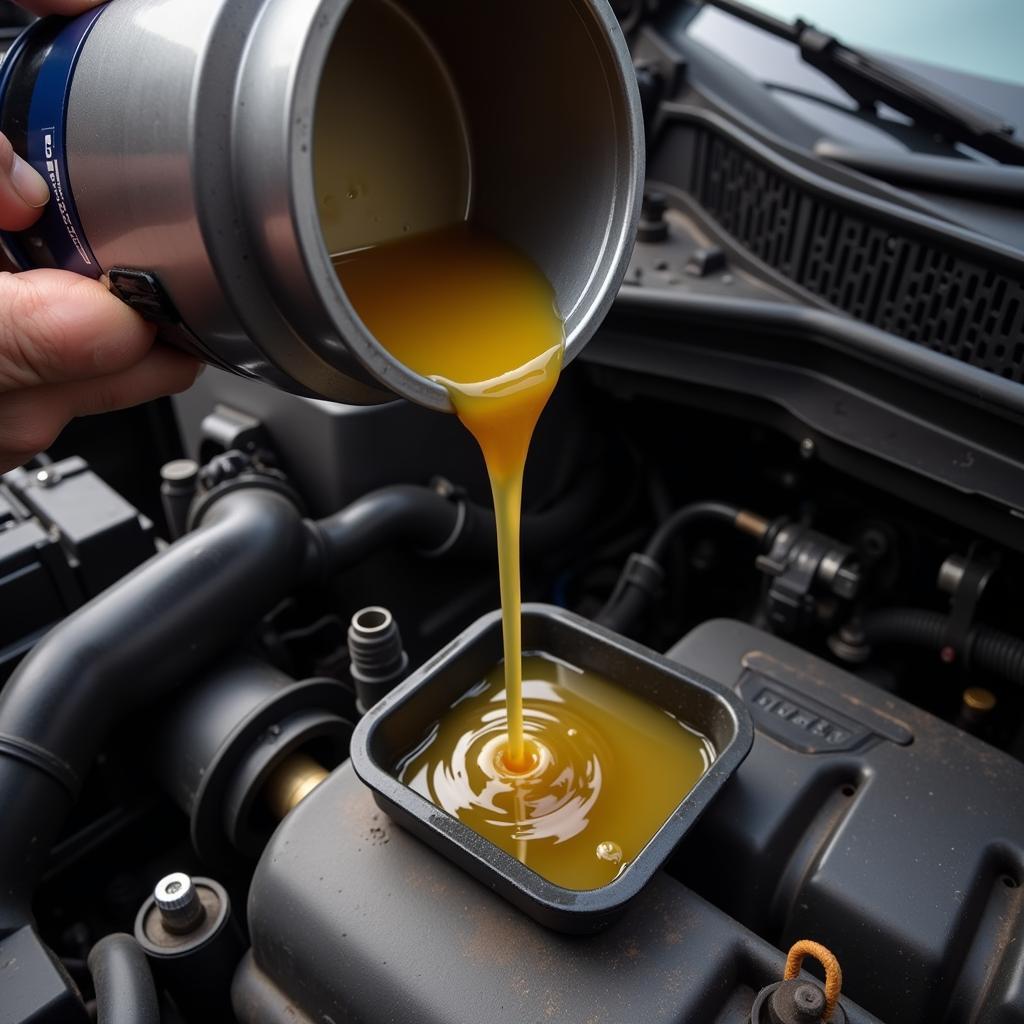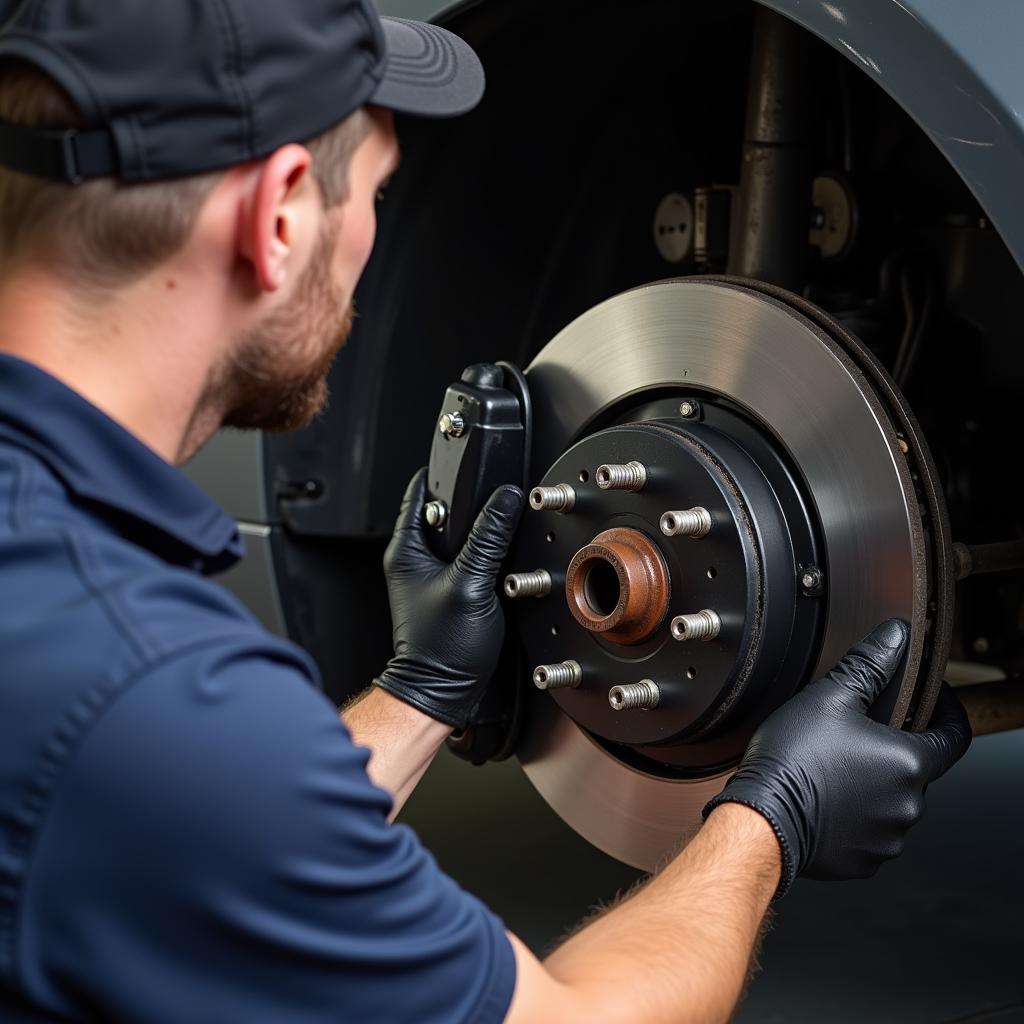How to Full Service a Car: A Comprehensive Guide
Giving your car a full service is essential for its longevity, performance, and safety. Whether you’re a seasoned DIYer or considering taking your car to a professional, understanding what a full car service entails can save you money and headaches down the road. This guide will provide a detailed walkthrough of How To Full Service A Car, covering everything from basic checks to more advanced procedures.
Knowing how to full service your car not only keeps it running smoothly but also helps you identify potential problems early on. A full car service typically includes checks and replacements related to the engine, brakes, suspension, steering, lights, and more. Let’s delve into the specifics.
what to do on a full car service
Essential Checks and Replacements During a Full Car Service
A full service is more comprehensive than a basic service and involves a thorough inspection of various components. Here’s a breakdown of the crucial areas to address:
Engine Oil and Filter Change
One of the most fundamental steps in a full car service is changing the engine oil and filter. Old oil can lose its lubricating properties, leading to increased engine wear and tear.
- Drain the old engine oil.
- Replace the oil filter with a new one.
- Refill the engine with the correct grade and quantity of oil.
Air Filter Replacement
A clogged air filter restricts airflow to the engine, impacting performance and fuel efficiency. Inspect and replace the air filter as needed.
Spark Plug Inspection and Replacement
Spark plugs ignite the air-fuel mixture in the engine cylinders. Worn-out spark plugs can cause misfires, reduced power, and poor fuel economy.
Fluid Level Checks and Top-ups
Check and top up all essential fluids, including coolant, brake fluid, power steering fluid, and windshield washer fluid. Low fluid levels can lead to various problems and even system failures.
 Car Engine Oil Change Process
Car Engine Oil Change Process
Brake Inspection and Pad/Rotor Replacement
Brakes are crucial for safety. Inspect the brake pads and rotors for wear and tear. If they are worn beyond a safe limit, replace them immediately.
Suspension and Steering Check
Inspect the suspension components, such as shocks and struts, for leaks and damage. Also, check the steering system for play and responsiveness.
Tire Pressure and Condition Check
Ensure that all tires are inflated to the correct pressure. Check the tire tread depth and look for any signs of damage or uneven wear.
how much is a full service for a car
Addressing Specific Car Service Questions
What Does a Full Car Service Include?
A full car service covers a wide range of checks and replacements, including engine oil and filter change, air filter replacement, spark plug inspection, fluid top-ups, brake inspection, suspension and steering check, and tire check.
How Much Does a Full Service Cost?
The cost of a full car service can vary depending on the make and model of your car, the location of the service center, and the specific services included. Getting a full service history can help you anticipate future costs.
How Often Should I Get a Full Service?
Generally, a full car service is recommended every 12,000 miles or annually, whichever comes first. However, it’s best to consult your car’s owner’s manual for specific recommendations.
 Mechanic Inspecting Car Brake Pads and Rotors
Mechanic Inspecting Car Brake Pads and Rotors
Expert Insights
“Regular full car servicing is like preventative medicine for your vehicle,” says John Smith, Senior Automotive Technician at Certified Auto Repair. “It keeps your car running efficiently, prevents costly repairs down the line, and ensures your safety on the road.”
Conclusion
Performing a full car service is an investment in your vehicle’s health and longevity. By following this comprehensive guide and addressing all essential checks and replacements, you can keep your car running smoothly and safely for years to come. Remember to consult your car’s owner’s manual for specific recommendations and always prioritize safety.
how to get full service history of a car
FAQs
- What is the difference between a full service and a basic service?
- How can I find a reputable car service center near me?
- Can I perform a full car service myself?
- What are the signs that my car needs a service?
- How long does a full car service typically take?
- What should I do if I hear unusual noises after a car service?
- What are the benefits of maintaining a full service history for my car?
where is the nearest full service car wash
what do you get in a full car service
“Don’t underestimate the importance of regular maintenance,” adds Jane Doe, Lead Mechanic at Auto Experts. “A small investment in a full service can save you a lot of money and hassle in the long run.”
For further assistance, feel free to contact us via WhatsApp: +1(641)206-8880 or Email: [email protected]. Our customer support team is available 24/7.

